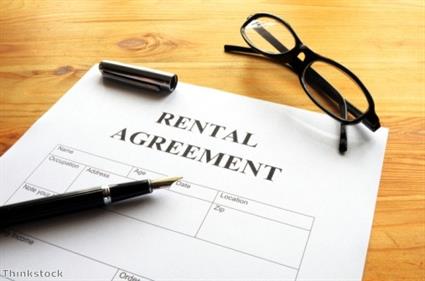Most people in both commercial or residential lets will have a tendency to trust their landlord and generally expect them to look after their best interests.
However, as with any business transaction, there are problems that can come to the fore when it comes to dealing with a landlord.
For tenants, the best course of action is to always know your rights, and don't be afraid to ask questions if you feel a landlord is not fulfilling their obligations.
Be aware of obligations
For both commercial and private lettings, one of the most common issues that can arise will centre around maintenance. When something stops working, we naturally want it fixed as soon as possible.
However, there can often be debates that arise when both parties believe they are not responsible for certain maintenance tasks.
The best way to avoid this becoming an issue is to be aware of your obligations from the start of your tenancy. Make sure you read your agreement and highlight key parts relating to this issue.
If you should happen to get into a dispute with your landlord, at least this way you'll know that you have some leverage, and quoting parts of your agreement will mean you are able to show them that you mean business and they can't push you around.
In general though, tenants will be responsible for things such as the interiors of the property (floors, walls, etc) while landlords must fix things such as utilities, plumbing and heating issues. The latter is also obliged to look after staircases, communal toilets and any other communal areas.
Be proactive
Another issue that often arises with any sort of tenancy agreement can come at the end of your rental period, where debates over the security deposit can arise.
Damage and loss are two of the reasons landlords will look to claim back at least a portion of any tenant's deposit, and this often leads to disputes and lengthy periods where neither party gets what they want.
The best way to avoid this is to deal with it before it becomes a problem. When you move into a property or an office space, look through the inventory before you do anything to make sure everything is present as well as in the state the document claims.
It can also help to take pictures of the property, time stamped and securely stored. This will give you leverage in any dispute if your landlord should become difficult and start making unreasonable demands.
Talk to your landlord
Try to remember at all times, no matter how difficult your landlord is being, that they are a person, and only want what you want, smooth and easy transactions.
If they are making demands that you feel are unreasonable, such as asking for rental payments early, putting the price up steeply when you are looking to renew your agreement or trying to do work on the property at unreasonable times - a particular problem in offices - try simply talking to them.
Many landlords will have emails as their primary point of contact. Of course, it's convenient, but this can actually cause problems as well. Tone can often be misconstrued and statements misunderstood.
For this reason, try to set up a face-to-face meeting. Ask your landlord to visit your property and take time to talk problems through with them. You'll be surprised at how easy it is to sort things out in this way.
Always cover yourself
When problems do crop up, this is often the most effective strategy to take.
Many people will wrongly try to withhold rent payments if they think their landlord is being difficult or unreasonable, but if your dispute should escalate, this will harm you more than it helps, no matter how justified you feel in your decision.
Always make sure that your rent is paid in full and on time, as well as keeping to any other demands that your tenancy agreement sets out. This can include rules over cleanliness and maintenance - both of which can give a problem landlord leverage over you in any dispute.

